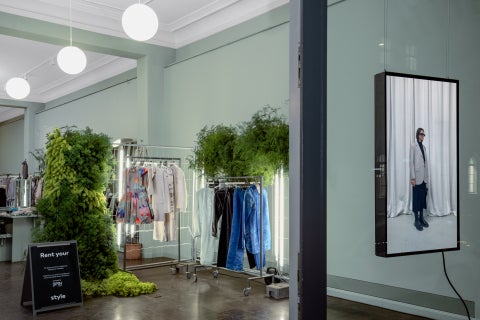
The new H&M rental service is described as the “first” blockchain-based IoT rental service and is based on lablaco’s circular fashion platform, Spin.
Through the collaboration, H&M Mitte Garten and lablaco aim to explore the potential of rental services within the new connected and digitised circular fashion industry.
The technology means with one click, the item of clothing can be booked, paid, and ready to be worn. When the item is returned to the store, it is checked, cleaned, and prepared for the next customer to rent.
For the first time, H&M Mitte Garten store customers can scan IoT care labels of selected products with smartphones, not only to track multiple individual product journeys at item level on blockchain, but to also add memories and stories to the garments by uploading their looks.
“We have a unique community and customer base – they love to explore new things, to experiment with their style and looks in a fashion-forward, sustainable and affordable way,” says Stiliana Stoyanova PR amd event manager Mitte Garten.
The rental service is available now until the end of the year and will feature different collections. The first collection will compromise 12 different fashion pieces with the rental period ranging from five days to 3 weeks and price per piece between EUR5-EUR9 (US$5.82-$10.49) per day. The account for Spin is free of charge.
Earlier this month, H&M opened a virtual fitting room experience for its new collection in selected Germany stores.
Meanwhile, H&M Group has also recently revealed the results from its large-scale collaborative study with Ikea on the challenges of chemical contamination within recycled textiles that could affect the wider apparel industry.
H&M Group and Ikea Group worked together on the large-scale project to help both companies transform into a circular business model and reach their goals of only using 100% recycled textiles or other sustainably sourced materials by 2030.



